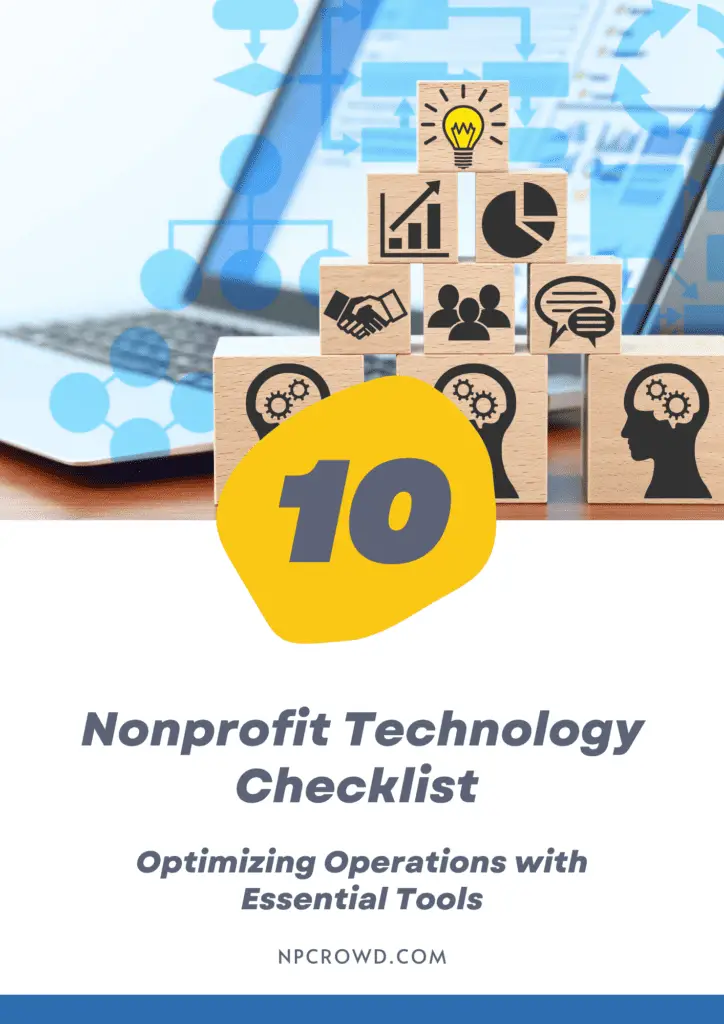5 Successful Tips To Find A Job Working For A Nonprofit
Disclaimer: This post may contain affiliate links. These links, if used and purchases made, we may earn a small commission. These affiliate programs do not impact the recommendations we make or the resources we refer you to. Our focus is on providing you the best resources for your nonprofit journey.
If you’re looking for a job that gives back to the community, working for a nonprofit is the way to go. Nonprofit jobs are often in positions of influence and responsibility, meaning that they often offer unique opportunities to learn and grow.In addition, nonprofit jobs can be great places to make a difference—they offer stability and a sense of purpose. So if you’re considering whether or not working for a nonprofit is right for you, here are tips to help get you started.
What is the Job Market for Nonprofits
Nonprofit jobs are scattered throughout the United States, with most job postings appearing in metropolitan areas. The job market for nonprofits is expected to grow by 7%. Nonprofits are often looking for people who have a passion for helping others and a dedication to service.
- There are 12.4 million nonprofit jobs in the US
- Hospitals and universities are the largest represented group
- 43.9% of all staff in the sector work for medium-sized nonprofits
- The District of Columbia has the highest percentage of nonprofit employment, 26.0 percent.
- The majority of nonprofits have zero employees
- Between 2007 and 2017, the number of jobs created by U.S. nonprofits grew by 18.6%
- Nonprofits generated the third largest payroll income of any U.S. industry in 2017
The pay and benefits of nonprofit jobs vary depending on the nonprofit organization, as well as the location where it is situated. In addition, many nonprofit organizations offer discounts or free services to those who work for them.
For example, The Mentoring Alliance, a regional youth-focused nonprofit based in Tyler, TX, offers free access to its after-school program and a week of summer camp to the children of its employees.
There are many different types of nonprofit jobs, such as social work, health care, education, and environmental conservation. To find a nonprofit job that best suits your skills and interests, check out the websites of several major non-profit organizations in your area.
Tips for Successful Job Searching for a Nonprofit
When searching for a nonprofit job, be prepared for a typical job search process with a twist. You will need to put in the extra effort to find the right nonprofit job and demonstrate your expertise and knowledge.
In addition, you will need to research the nonprofit sector specifically and find nonprofit job boards that are relevant to your interests.
Let’s look at a few tips to help your nonprofit job search.
Demonstrate Your Well Rounded Knowledge, Expertise, and Character
If you are looking for a position within a nonprofit organization, it is important that you have well-rounded knowledge in different areas depending on the focus area you want to serve.
This includes business administration, marketing, fundraising, policymaking, event planning, etc. It also helps if you have experience working with organizations of this size and type.
Volunteer Before You Need A Job
Volunteering can be a great way to help out your community. However, if you don’t have any past volunteer work under your belt, it may be helpful to start by volunteering before you need a job. This will give you some experience in the nonprofit sector and make it easier for you to find work once you are ready.
Many hiring managers in nonprofits will see previous nonprofit volunteer experience as a sign of your commitment to a cause and having some level of knowledge as to the reality of nonprofit work.
Search Nonprofit Specific Job Boards
There are many nonprofit-specific job boards, which can be a great resource for finding a career in the nonprofit field. Rather than only looking at the typical large job boards like Indeed and LinkedIn, these specialty nonprofit job boards help focus your search and the applicant pool that organizations review.
Some of the most popular boards include Idealist.org, and Work For Good. However, take a look at our list of the best nonprofit job boards we recommend to nonprofits in our related article.
Research Nonprofits You Like Online
Some nonprofit organizations list their open positions on national job boards, but others don’t. It can be helpful to flip the script and research nonprofits that you would really love to work for. Then, check out their website and look for a careers or jobs link.
Alternatively, reach out to the organization with your resume and an awesome letter to describe your alignment with the organization, how your experience could directly benefit the organization, and your desire to work for them.
Deciding On A Job Working For a Nonprofit.
There are a variety of nonprofit jobs available, both for those who are interested in working with organizations and those who want to get their foot in the door. There are many types of nonprofits, from small groups of people dedicated to helping others through grassroots activism to large, institutional organizations that rely on donations and staff members from the general public. The best way to determine if a nonprofit job is right for you is to research the organization and see what type of work they offer. There are many different nonprofit organizations out there that have different types of jobs available, so it’s important to find one that you feel comfortable with.
Additionally, be sure to ask around at your community or professional networks if anyone has worked at a nonprofit before and can give you some tips.
Find a Nonprofit That Needs Your Vocational Expertise
If you have experience in a particular field and are interested in helping a nonprofit meet its goals, your expertise may be valuable. There are many nonprofits out there that need help with everything from expanding their operations to fundraising to building new programs.
Nonprofits need technology experts, business managers, accountants, and more just like any business. Many for-profit roles have transferrable and needed skillsets in the nonprofit world. If you feel like you have the skill set necessary to help these organizations succeed, please reach out to them and see if they would be interested in hiring you.
If you don’t have any specific skillsets or experience working with people, it might be helpful to look for nonprofits that need generalists or related entry-level roles.
For example, if you want to work with children in developing countries, you may find a nonprofit that specializes in child care. Alternatively, if you’re going to help marginalized groups such as new immigrants to America, you may join an organization focused on human rights, education, or immigration issues.
Benefits of Working for a Nonprofit
One of the cool things about working for nonprofits is that there are indeed different than for-profit businesses. A couple of key benefits to working for a nonprofit include: 1. Vision and Mission: Nonprofits have a specific charitable purpose baked into their formation. Most employees are inherently aligned with that purpose and therefore everyone is working together to achieve the mission. How nice! 2. Greater Integrity: Nonprofit organizations are typically more reliable and trustworthy than commercial Organizations. This is because they do not make profits and do not rely on outside sources of funding. 3. Better Representation: Nonprofit Organizations often have a higher percentage of women and minority groups involved in their management than commercial Organizations. This is due to the fact that these groups often have more clout within nonprofit communities and can bring about change through their work.
What are the Different Types of Nonprofits To Consider
There are many types of nonprofits that one could consider, from small grassroots organizations to large, well-funded organizations.
Some potential nonprofit types to consider include social welfare organizations, environmental organizations, religious groups, and educational organizations.







